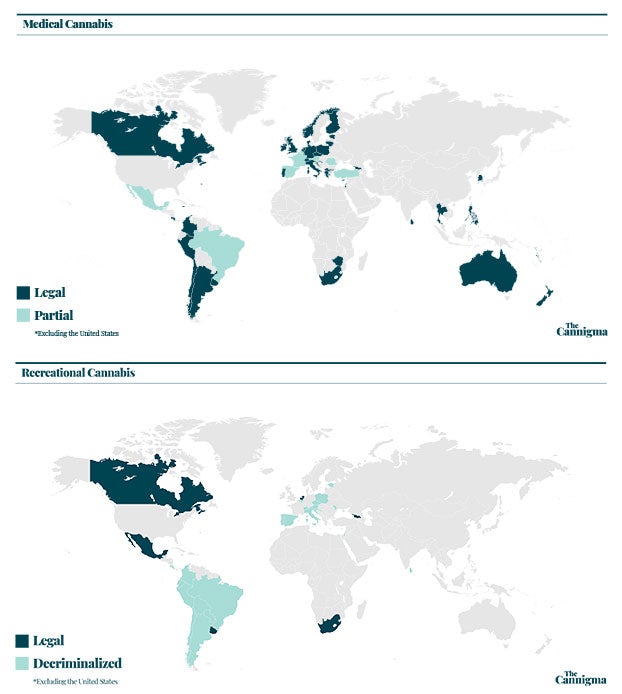On November 25, 2019, the Food and Drug Administration (the “FDA”) released a consumer update titled “What You Need to Know (and What We’re Working to Find Out) About Products Containing Cannabis or Cannabis-derived Compounds, Including CBD.” Nearly a year after the enactment of the 2018 Farm Bill (the “Farm Bill”), the FDA has not taken any formal rule-making action regarding the regulation of consumer products containing cannabis ingredients, including cannabidiol (“CBD”). However, the FDA has released several warning letters, consumer publications, frequently asked questions, statements regarding its regulatory authority of such products, and held public hearings for comment.
In this consumer update, the FDA explains that using a product containing CBD may have certain risks that may harm consumers before the consumer becomes aware of the harm. Examples include:
- Liver Injury. During its review of the new drug application for Epidiolex, which contains CBD, the FDA identified liver injury as a safety risk. The FDA determined that this risk could be managed when taken under the supervision of a doctor, yet, such risk is unclear when it is generally used without medical supervision and sold not in accordance with FDA approved labeling.
- Drug Interactions. CBD may interact with medications. CBD may increase or decrease the effects of certain medications and may lead to increased chance of an adverse effect from such medications. The FDA is also concerned about the interaction of CBD with herbs and botanicals in dietary supplements.
- Male Reproductive Toxicity. Animal studies have shown that CBD may cause male reproductive toxicity that could negatively impact male fertility and the fertility of male children of pregnant females. As these were studies performed on animals, and not humans, further testing and evaluation is needed to understand this risk for humans.
The FDA also states that using CBD may have certain temporary side effects. These may include, among others, drowsiness, insomnia, gastrointestinal distress, decreased appetite, irritability, and agitation. The FDA is actively working to learn and identify risks associated with cumulative exposure such as ongoing use and ingestible or topical use, the effect on special populations such as elderly, children, and pregnant or breastfeeding women, and the use of CBD by pets and other animals.
Unproven Medical Claims and Unsafe Manufacturing Practices. The FDA has not wavered from its concern for unapproved CBD products such as drugs, cosmetics, food, and products labeled dietary supplements, being marketed to treat, mitigate, and/or cure particular diseases for which they have not been evaluated by the FDA. Not only do these products promote misleading, unproven or false claims associated with the intended use of the product, but such claims may also lead consumers to forego proper medical advice, do not reflect proper dosage use, and may interact with certain drugs or foods. The FDA warns that the inferior quality and unsafe production methods of such products may also put consumers at risk, e.g., the failure to comply with appropriate processing and production methods. The FDA has found products exaggerating the levels of certain compounds or containing contaminants such as pesticides and heavy metals.
The FDA is Continuing to Evaluate the Regulatory Framework for Products Containing Cannabis and Cannabis-derived Compounds. Epidiolex is the only FDA approved drug product containing CBD. The FDA believes that the new drug approval process is the best way to ensure the safety and effectiveness of new medicines. Even though products are being sold as a food and/or marketed as a dietary supplement, “it is illegal to market CBD by adding it to a food or labeling it as a dietary supplement.” “The FDA is evaluating the regulatory frameworks that apply to certain cannabis-derived products that are intended for non-drug uses, including whether and/or how the FDA might consider updating its regulations, as well as whether potential legislation might be appropriate.”
The content of this article is intended to provide a general guide to the subject matter. Specialist advice should be sought about your specific circumstances.
Sign up for bi-weekly updates, packed full of cannabis education, recipes, and tips. Your inbox will love it.

 Shop
Shop Support
Support
















